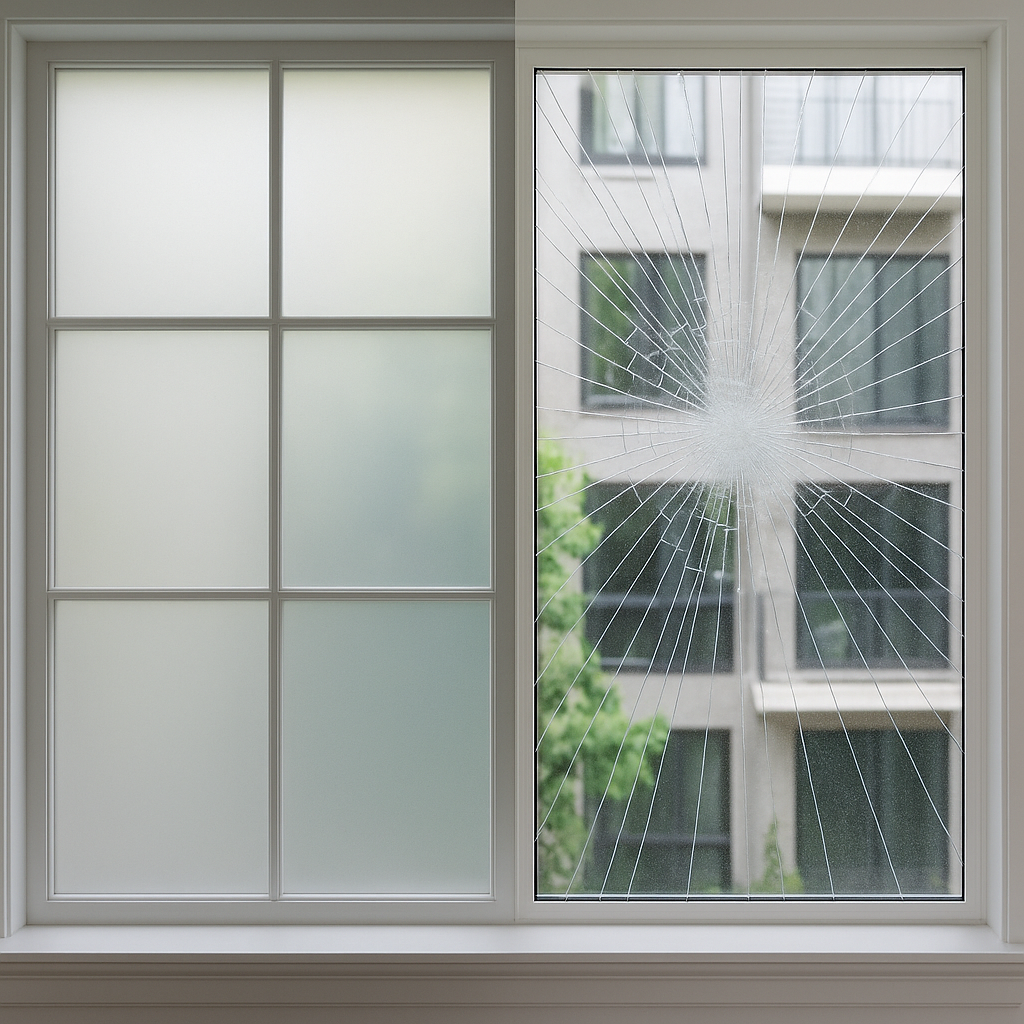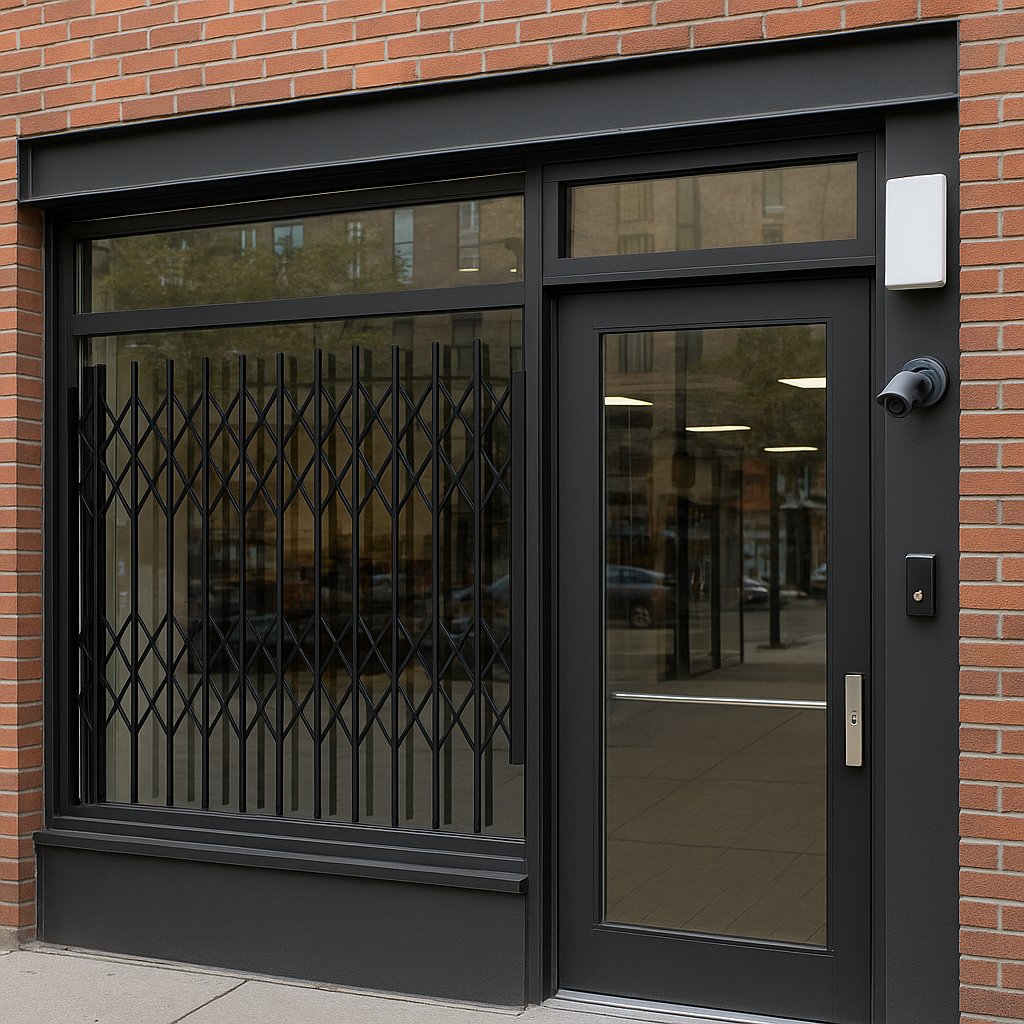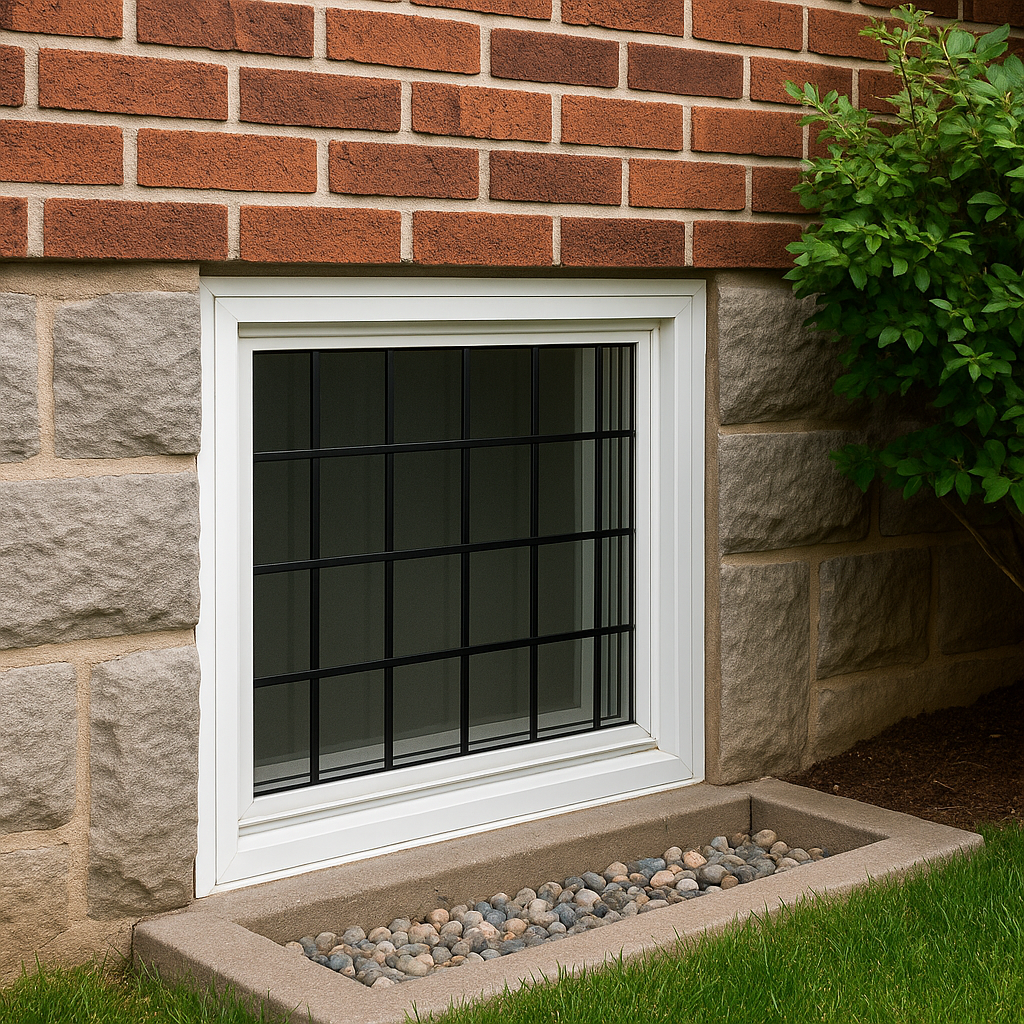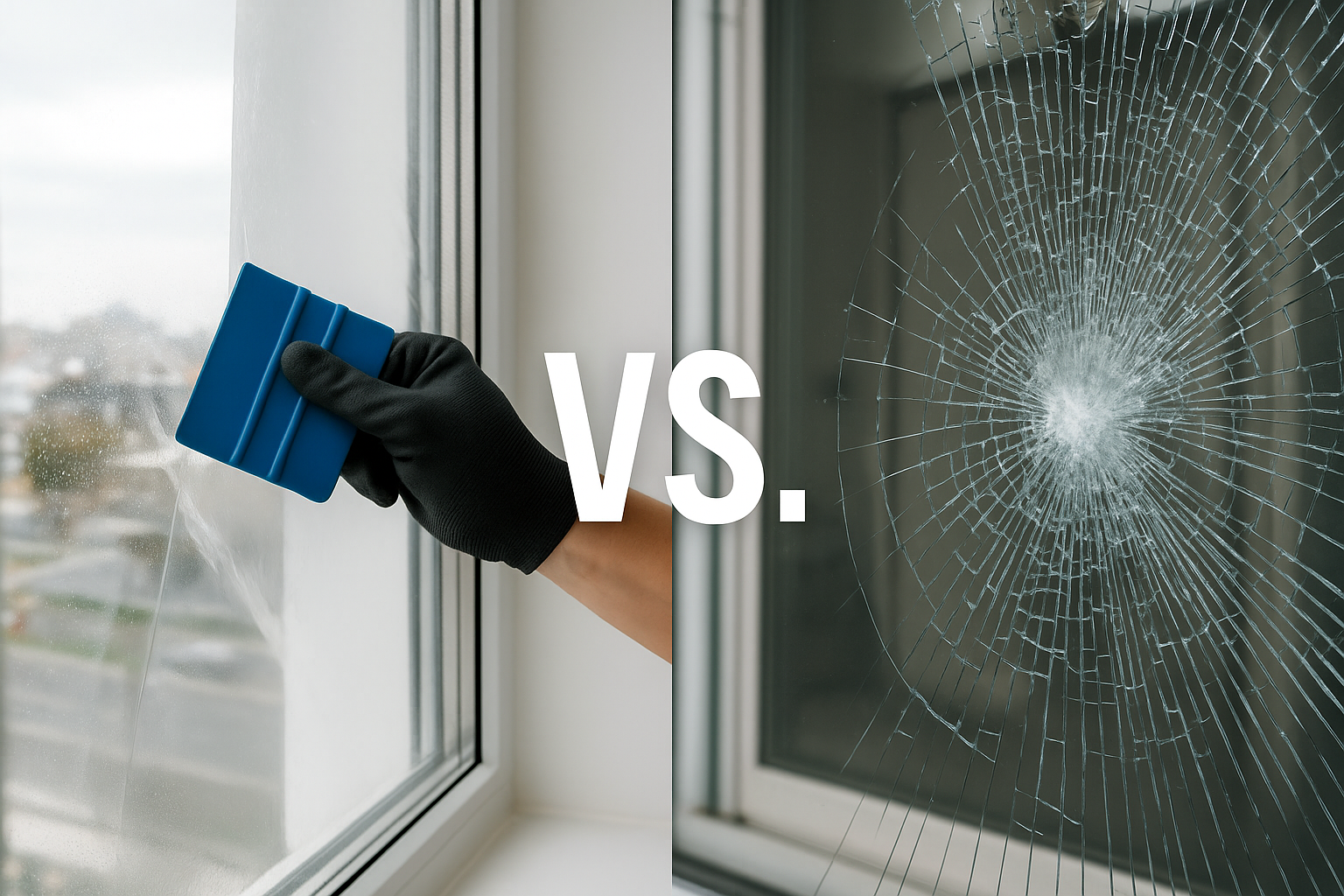When you think of window film, you might picture tinted glass on a car or reflective panels on a storefront. But residential and commercial window films come in many forms, each with unique purposes. Among the most popular are privacy window film and security window film—two types that may look similar but serve very different roles.
If you’re a homeowner or business owner in Toronto considering window film installation, understanding the difference between these two products can help you make a smart, effective investment. In this guide, we’ll break down what sets privacy and security window films apart, explore their use cases, and help you decide which type is right for your space.
What Is Privacy Window Film?
Privacy window film is designed to obscure visibility through glass while still allowing light to pass through. Its primary function is to block views into a space, providing visual separation between indoors and outdoors—or between rooms within a building.
Common Types of Privacy Film:
- Frosted film – Offers a sandblasted or etched-glass effect; great for bathrooms, front doors, and offices.
- Reflective or mirrored film – Reflects light on the outside, often used on storefronts or high-traffic areas.
- Blackout or whiteout film – Completely blocks visibility from both sides; ideal for storage rooms or private spaces.
- Decorative designs – Add visual interest while increasing privacy; great for commercial interiors.
Key Features:
- Aesthetic enhancement
- Improved privacy during daylight hours
- Easy to remove or replace
- Some UV protection
Use Cases:
- Residential: Bathroom windows, sidelights, front doors, bedrooms
- Commercial: Meeting rooms, private offices, storefronts
Important to note: While privacy film may offer limited UV protection or mild reinforcement, it is not intended to withstand forceful impact or prevent glass shattering.
What Is Security Window Film?
Security window film is designed to strengthen glass and resist shattering. Its main purpose is to protect people and property by holding glass together when it’s broken—either by accident, natural disaster, or forced entry.
Key Features:
- Thicker than privacy film (typically 8–15 mil)
- Holds broken glass in place upon impact
- Helps deter break-ins by making entry more difficult
- May include UV blocking and solar control options
Use Cases:
- Residential: Ground-floor and basement windows, patio doors, garage windows
- Commercial: Storefront glass, display windows, schools, healthcare facilities
Bonus: Security film is virtually invisible. Once installed, it doesn’t affect the look of your glass or block natural light.
Core Differences Between Privacy and Security Window Film
| Feature | Privacy Window Film | Security Window Film |
|---|---|---|
| Primary Purpose | Obscure visibility | Reinforce glass to resist impact |
| Typical Thickness | 2–4 mil | 8–15 mil |
| Appearance | Frosted, mirrored, tinted, decorative | Clear or slightly tinted |
| Break-In Resistance | Minimal | High |
| UV/Heat Control | Varies (some films have this feature) | Often included with premium films |
| Installation Areas | Bathrooms, bedrooms, offices | Entry points, street-level windows |
| Aesthetic Impact | Moderate to high | Low to none |
Which Type of Film Do You Need?
The right choice depends on your goals. Below are common scenarios that highlight when to choose privacy, security, or even a combination of both.
✅ Choose Privacy Film If:
- You want to prevent people from seeing inside your home or office during the day
- You’re trying to enhance aesthetics or add decorative flair
- You need a solution for interior spaces (e.g., glass conference rooms)
Examples:
- A Toronto condo owner installs frosted film on bathroom windows facing another building.
- A retail store uses reflective film to limit visibility from the street into the office area.
✅ Choose Security Film If:
- You’re concerned about break-ins or vandalism
- You want to protect against shattered glass from storms or accidents
- Your windows are on a ground or basement level
Examples:
- A homeowner in Etobicoke applies security film to back patio doors after nearby thefts.
- A jewelry store downtown installs security film to reinforce large street-facing display windows.
✅ Choose Both If:
- You want privacy and protection
- You’re securing sensitive areas like street-level bathrooms, clinics, or front-door sidelights
- You need reinforced windows but also want to block visibility
Some manufacturers offer dual-purpose films that combine both functions. For instance, a frosted or tinted security film can provide both privacy and resistance to impact. These are ideal for storefronts, clinics, or front entrances where both concerns apply.
The Case for Dual-Function Window Films
Modern innovations have led to hybrid films that offer both privacy and security features. While these may cost more upfront, they eliminate the need for layered solutions or multiple applications.
Benefits of Dual-Function Films:
- Streamlined appearance
- Faster installation process
- Fewer products needed
- Multi-functional protection
If you’re unsure whether one film will do the job, ask your installer about hybrid options. At Window Guard, we carry a variety of solutions tailored to your exact needs.
Other Considerations: Toronto-Specific Factors
Living in the Greater Toronto Area brings unique factors into play when choosing window film:
1. Urban Density
Toronto’s high-rise neighborhoods, row housing, and tight alleyways make privacy a growing concern—especially with windows facing other homes or buildings. Privacy film helps reduce exposure without needing blinds or curtains.
2. Break-In Rates
Toronto Police Service data shows a consistent number of residential and commercial break-and-enters. Ground-floor windows, basement access points, and patio doors are common targets. Security film adds a crucial layer of defense.
3. Weather Protection
Toronto experiences four seasons, including harsh winters and stormy summers. Security film doesn’t just stop intruders—it also helps hold glass together during high winds, flying debris, and hail.
4. Building Regulations and Condo Boards
Some buildings restrict certain types of window alterations. Clear security film is often approved where exterior aesthetics must remain uniform, while some privacy films may require approval.
Installation Tips: Getting the Best Results
Whether you’re installing privacy or security film, proper installation is key. Here are some tips:
- Hire professionals. Especially for security film, expert application ensures it bonds properly and lasts.
- Ask about warranties. Reputable installers offer warranties for both materials and labor.
- Check light levels. Some privacy films may darken a room—be sure to evaluate samples first.
- Measure carefully. Ensure the entire window surface is covered, especially for security film.
At Window Guard, we provide consultation, product recommendations, and professional installation across Toronto and the GTA.
Final Thoughts: Privacy or Security—Or Both?
Choosing between privacy vs. security window film comes down to your specific needs. If you’re concerned about visibility and aesthetics, go with privacy film. If you’re worried about break-ins or shattered glass, security film is the answer. And if you need both? A dual-function film or layered solution might be perfect.
No matter what you choose, professionally installed window film is a powerful, cost-effective way to protect your home or business.
Trust Window Guard for Professional Window Film Solutions
Serving the Greater Toronto Area, Window Guard specializes in both privacy and security window film solutions for homes, offices, and commercial properties. We help you:
- Identify the right film based on your goals and environment
- Choose from premium-grade products with warranties
- Get expert installation with clean, seamless results
Contact us today for a free quote and personalized consultation. Let us help you transform your glass into a safer, more private, and stylish surface.




